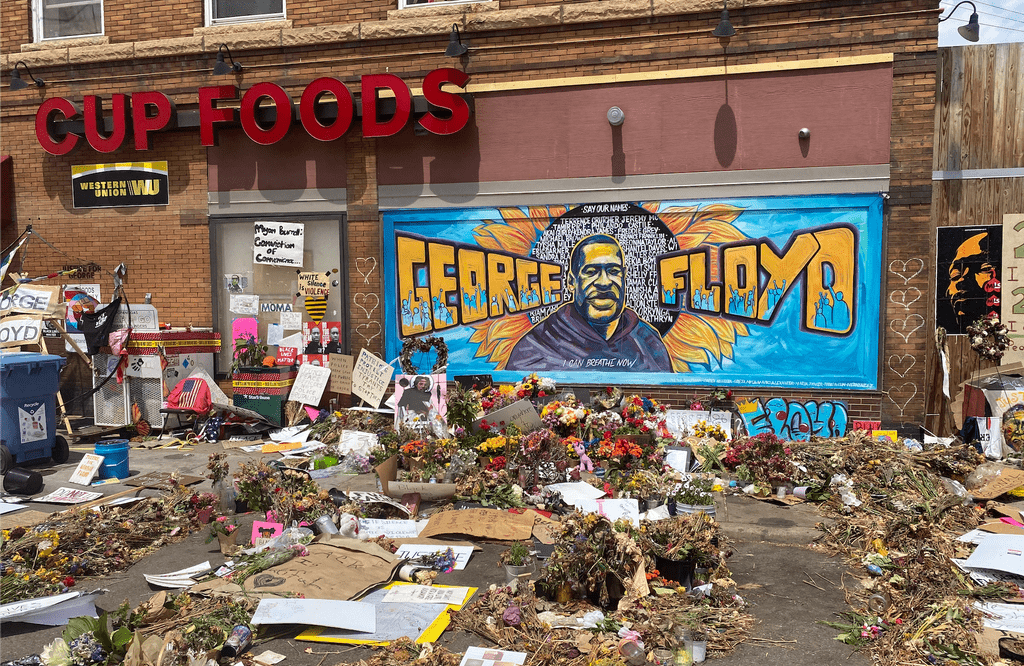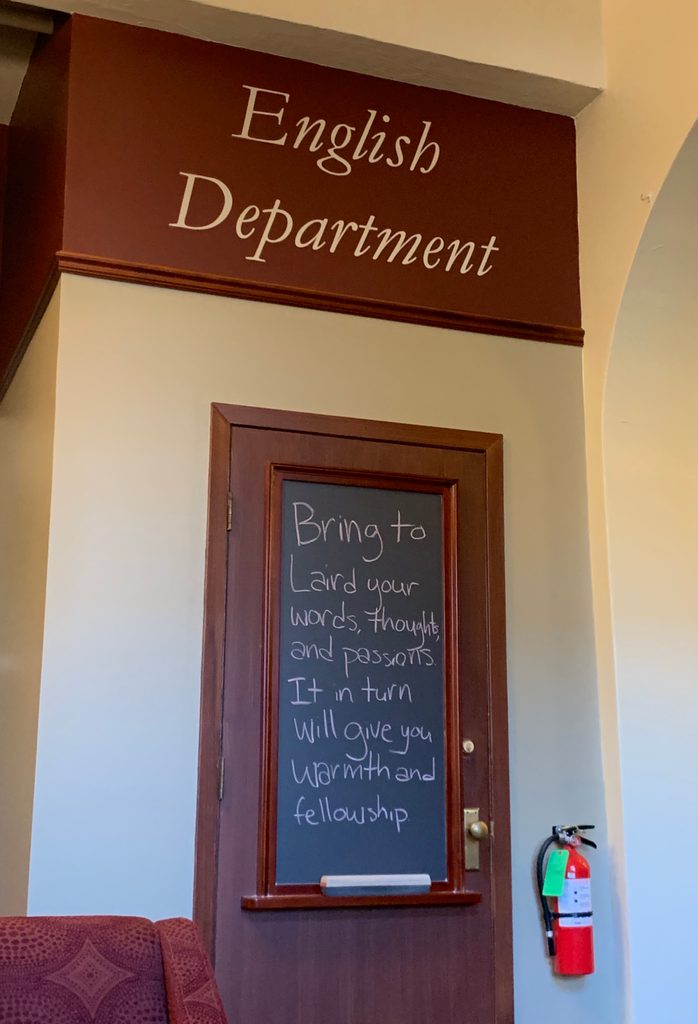
In the wake of George Floyd’s murder (occurring just 40 miles from our campus), national protests for racial justice, and the continued devastation of COVID-19, we at The Second Laird Miscellany have been thinking a lot about what it means to be an English major, and whether it can help us digest our current reality. Does the study of literature stand apart from politics in a poetic, aesthetic bubble? Or rather, is it woven into our understanding of the current political climate, and ourselves? In this post, we list three ways in which English majors can take the pulse of their world.
1. As English majors, we participate in ideology negotiation: the understanding of texts in light of shifting social and political realities (Khaghaninejad 94).
The attempt to understand literary texts is an active struggle (94). Because their meanings can never be truly fixed, literary analysis represents a process that can never be completed (92). With this dynamism comes the idea of reading as an intellectual activity with social and political responsibilities – not just a quest for knowledge for its own sake (93). As readers, we engage with the texts and circumstances of a particular writer, but are also asked to explain and articulate our own understanding of what the text might mean. In doing so, we bring our own ideologies, experiences, and circumstances to the texts (97). The English Department of Yale University summarizes this idea well: “In the writing of the past, we discover both its intimacy and its distance from us. In the writing of the present, we encounter the experiences of others at their most articulate, and most various” (Yale University, n.p.).
2. As English majors, we train our minds to both respect and reconcile differences.
Texts, and what is written about them, are often contradictory. For this reason, by reading we train our minds to accommodate and harmonize competing urges (Aubury, n.p.). This reconciliation of ideas is all about bridging gaps: something we desperately need in politics today. In this way, reading novels and critical analyses serves as a blueprint for turning criticism into an engine of political change (n.p.). In their article “Place and Role of English Classical Literature in Modern Educational Discourse,” authors Natalya Zerkina et al. explain: “Gaining a broad view of society, through the eyes of another, fosters understanding, tolerance and empathy” (461). They note that these capacities cannot be underestimated in today’s multiracial, multiethnic, and multicultural society (461).

3. As English majors, we refine a skill that is beyond price, and not tied to any particular technology, market, or nation: getting people to care (Yale University, n.p.).
Unlike most technical knowledge, the English major’s tools will never be obsolete (n.p.). People will always be valued for their ability to communicate their message! The challenges of the present have led many to place their faith in technology, science, and economics (n.p.). However, the Yale English department reminds us that, “equally important is the ability to articulate values and alternatives, to persuade others to share a common vision” (n.p.). They note that major tech companies, including Google, pursue English majors who can explain not just how technology works but what it means (n.p.). In this way, English majors can tailor their skills to any market or cause. By explaining what something means, English majors convince people to commit to finding solutions for today’s most pressing problems. These include, but are not limited to, racism, poverty, climate change, and global health.
Sources:
Aubry, Timothy. “The Paradoxical Politics of Literary Criticism.” The New Republic, 12 Oct. 2017, newrepublic.com/article/145265/paradoxical-politics-literary-criticism.
Khaghaninejad, Mohammad Saber. “Political Practice of Literary Analysis: How to Read Literature More Closely.” International Letters of Social and Humanistic Sciences, vol. 49, 2015, pp. 92–105., doi:10.18052/www.scipress.com/ilshs.49.92.
Yale University. “Why Major in English?” English, english.yale.edu/undergraduate/why-major-english.
Zerkina, Natalya, et al. “Place and Role of English Classical Literature in Modern Educational Discourse.” Procedia – Social and Behavioral Sciences, vol. 199, 2015, pp. 459–463., doi:10.1016/j.sbspro.2015.07.532.